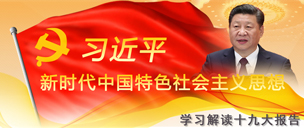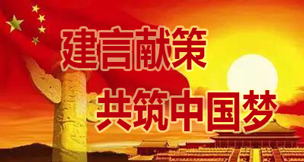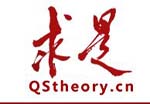紀(jì)念“五一口號”發(fā)布70周年座談會在京舉行譜寫新時代多黨合作新篇章

4月28日,紀(jì)念中共中央發(fā)布“五一口號”70周年座談會在北京舉行,中共中央政治局常委、全國政協(xié)主席汪洋出席并講話。1948年4月30日,中共中央發(fā)布“五一口號”,提出召開政治協(xié)商會議、成立民主聯(lián)合政府的號召,得到了各民主黨派、無黨派人士的積極響應(yīng)。
70年前,中共中央發(fā)布了“五一口號”,開啟了中國共產(chǎn)黨領(lǐng)導(dǎo)的多黨合作和政治協(xié)商制度的歷史序幕,是我國政黨制度史上具有里程碑意義的重大事件。為紀(jì)念這一重要歷史事件,中共中央領(lǐng)導(dǎo)人參加了紀(jì)念活動,深情回顧統(tǒng)一戰(zhàn)線光輝歷史,認(rèn)真總結(jié)多黨合作成功經(jīng)驗,繼承發(fā)揚(yáng)團(tuán)結(jié)共事優(yōu)良傳統(tǒng),同心共創(chuàng)民族復(fù)興美好未來。
4月30日是中共中央發(fā)布“五一口號”70周年。1948年4月30日,在人民解放戰(zhàn)爭取得節(jié)節(jié)勝利的關(guān)鍵時刻,中共中央發(fā)布“五一口號”,提出召開政治協(xié)商會議、成立民主聯(lián)合政府的號召,得到了各民主黨派、無黨派人士的積極響應(yīng)。

4月28日,紀(jì)念中共中央發(fā)布“五一口號”70周年座談會在北京舉行,中共中央政治局常委、全國政協(xié)主席汪洋出席并講話。
經(jīng)中共中央批準(zhǔn),4月19日,中央統(tǒng)戰(zhàn)部組織各民主黨派中央負(fù)責(zé)人和無黨派人士代表赴西柏坡、李家莊參觀學(xué)習(xí)并舉行座談會,紀(jì)念中共中央發(fā)布“五一口號”70周年。

中國社會科學(xué)院國家文化安全與意識形態(tài)建設(shè)研究中心副主任兼秘書長朱繼東指出,“五一口號”發(fā)布是中國共產(chǎn)黨領(lǐng)導(dǎo)的多黨合作和政治協(xié)商制度史上的重大事件。
朱繼東表示,中共中央70年前發(fā)布“五一口號”不僅得到了各民主黨派和無黨派民主人士的熱烈響應(yīng),而且在全國引起極大反響,使得建立新中國成為越來越多中國人的熱切向往和努力方向。尤其是各民主黨派和無黨派民主人士不僅通過發(fā)表宣言、通電和談話等方式積極響應(yīng),而且紛紛應(yīng)邀奔赴解放區(qū)一起與中國共產(chǎn)黨共商建國大計。

朱繼東表示:“‘五一口號’發(fā)布不僅標(biāo)志著各民主黨派和無黨派人士在經(jīng)過長期實踐比較后終于開始公開、自覺地接受中國共產(chǎn)黨的領(lǐng)導(dǎo),更標(biāo)志著各民主黨派和無黨派人士在中國共產(chǎn)黨領(lǐng)導(dǎo)下從此堅定地走上了建設(shè)新民主主義、社會主義的光輝道路。
1949 年9月21日,中國人民政治協(xié)商會議第一屆全體會議在北京召開,標(biāo)志著中國共產(chǎn)黨領(lǐng)導(dǎo)的多黨合作和政治協(xié)商制度正式確立。
今年全國“兩會”期間,中國中央總書記習(xí)近平在民盟、致公黨、無黨派人士、僑聯(lián)界委員聯(lián)組會上發(fā)表重要講話,明確提出中國共產(chǎn)黨領(lǐng)導(dǎo)的多黨合作和政治協(xié)商制度是“從中國土壤中生長出來的新型政黨制度”和“對人類政治文明的重大貢獻(xiàn)”。
朱繼東表示,在中國共產(chǎn)黨領(lǐng)導(dǎo)的多黨合作和政治協(xié)商制度下,中國共產(chǎn)黨與各民主黨派的根本利益具有一致性,攜手高效合作,并強(qiáng)調(diào)各民主黨派決不是什么在野黨,更不是反對黨,而是中國共產(chǎn)黨的好參謀、好幫手、好同事。

朱繼東表示,中國共產(chǎn)黨領(lǐng)導(dǎo)的多黨合作和政治協(xié)商制度,把各個政黨和無黨派人士緊密團(tuán)結(jié)起來、為著共同目標(biāo)而奮斗,有效避免了一黨缺乏監(jiān)督或者多黨輪流坐莊、惡性競爭的弊端;它通過制度化、程序化、規(guī)范化的安排集中各種意見和建議、推動決策科學(xué)化民主化,有效避免了舊式政黨制度囿于黨派利益、階級利益、區(qū)域和集團(tuán)利益決策施政導(dǎo)致社會撕裂的弊端。
朱繼東表示,具有70年歷史的中國共產(chǎn)黨領(lǐng)導(dǎo)的多黨合作和政治協(xié)商制度,不僅符合當(dāng)代中國實際,而且符合中華民族一貫倡導(dǎo)的天下為公、兼容并蓄、求同存異等優(yōu)秀傳統(tǒng)文化,是對人類政治文明的重大貢獻(xiàn)。

汪洋在4月28日紀(jì)念中共中央發(fā)布“五一口號”70周年座談會上講話時強(qiáng)調(diào),中國特色社會主義進(jìn)入新時代,多黨合作舞臺極為廣闊。要毫不動搖堅持中國共產(chǎn)黨領(lǐng)導(dǎo),堅決維護(hù)習(xí)近平總書記核心地位,堅決維護(hù)中共中央權(quán)威和集中統(tǒng)一領(lǐng)導(dǎo)。要牢牢把握我國發(fā)展新的歷史方位,不斷鞏固共同思想政治基礎(chǔ)。要加強(qiáng)中國特色社會主義參政黨自身建設(shè),以政治建設(shè)為統(tǒng)領(lǐng),不斷提高履職盡責(zé)的能力水平。要講好中國多黨合作故事,展示我國新型政黨制度的理論特色、實踐特色、時代特色。
朱繼東表示:“回首光榮歷史,中國共產(chǎn)黨和各民主黨派、無黨派人士都應(yīng)該牢記先輩們70年前作出的重大政治抉擇,不忘合作初心,繼續(xù)攜手前進(jìn),把我國新型政黨制度堅持好、發(fā)展好、完善好。”
英文稿:
Chinese political leaders have been commemoratinga landmark event that preluded China's party system 70 years ago.
Monday marks the 70th anniversary of "May 1Slogans," a call made by the Communist Party of China (CPC) CentralCommittee on April 30, 1948 for non-communist parties, as well as peoplewithout party affiliation, to convene a political consultative conference andfound a democratic coalition government while China was in the midst of aliberation war.
A meeting was held here to mark the historicoccasion Saturday, at which Wang Yang, member of the Standing Committee of thePolitical Bureau of the CPC Central Committee and chairman of the National Committeeof the Chinese People's Political Consultative Conference (CPPCC), made aspeech.
About 10 days ago, leaders of the non-communistparties and senior figures without party affiliation visited revolutionarysites in north China's Hebei Province to commemorate the "May 1Slogans."
The call made by the CPCCentral Committee was an important event in the history of CPC-led multipartycooperation and political consultation system, said Zhu Jidong, research fellowwith the Academy of Marxism of the Chinese Academy of Social Sciences.
Seven decades ago, the "May 1 Slogans"received an ardent response from leaders of non-communist parties, who echoedpositively through public statements, phone calls and meetings with CPCleaders, according to Zhu.
"It indicated that non-communist parties andpeople without party affiliation began to openly and willingly follow the CPC'sleadership and embrace new democracy and socialism," Zhu said.
In September 1949, the first plenary meeting ofthe CPPCC was held in Beijing, marking the establishment of the CPC-ledmultiparty cooperation and political consultation system.
At a joint panel discussion with politicaladvisors in March, Xi Jinping, general secretary of the CPC Central Committee,had called the system "a new type of party system growing from China'ssoil" and "a great contribution to the political civilization ofhumanity."
Under this system, the CPC and non-communistparties share fundamental interests and work together effectively, Zhu said,stressing that non-communist parties are not opposition but consultants, aides,and co-workers of the CPC.
China's party system unites all political partiesand people without party affiliation toward a common goal, effectivelypreventing both the flaws of the absence of oversight in one-party rule andpower rotation and nasty competition among multiple political parties, he said.
It pools ideas and suggestions throughinstitutional, procedural, and standardized arrangements and develops ascientific and democratic decision-making mechanism, avoiding another weaknessof the old-fashioned party system, in which decision making and governance,confined by interests of different political parties, classes, regions andgroups, tear society apart, he said.
The 70-year history of China's party system hasdemonstrated that it fits China's reality and traditional culture, he said.
In his Saturday speech, Wang Yang said it isnecessary to unwaveringly uphold Party leadership and uphold General SecretaryXi's core status, as well as uphold the authority and the centralized, unifiedleadership of the CPC Central Committee, calling on non-communist parties toenhance their capabilities to perform their duties.
"Both the CPC and non-communist partiesshould not forget the original aspiration that drove leaders of oldergenerations to jointly forge this system," Zhu said.
(來源:新華社)
1、本文只代表作者個人觀點,不代表本站觀點,僅供大家學(xué)習(xí)參考;
2、本站屬于非營利性網(wǎng)站,如涉及版權(quán)和名譽(yù)問題,請及時與本站聯(lián)系,我們將及時做相應(yīng)處理;
3、歡迎各位網(wǎng)友光臨閱覽,文明上網(wǎng),依法守規(guī),IP可查。
作者 相關(guān)信息
專訪數(shù)學(xué)家舒其望:若整天忙著填表評杰青,哪有
2018-05-02內(nèi)容 相關(guān)信息
? 昆侖專題 ?
? 十九大報告深度談 ?

? 新征程 新任務(wù) 新前景 ?

? 我為中國夢獻(xiàn)一策 ?

? 國資國企改革 ?

? 雄安新區(qū)建設(shè) ?

? 黨要管黨 從嚴(yán)治黨 ?

 王立華:這次修憲有“五個好”
王立華:這次修憲有“五個好” 王立華:這次修憲有“五個好”
王立華:這次修憲有“五個好”
 中國工程院院士倪光南:“中國芯”有“兩座大山”要跨越
中國工程院院士倪光南:“中國芯”有“兩座大山”要跨越 中國工程院院士倪光南:“中國芯”有“兩座大山”要跨越
中國工程院院士倪光南:“中國芯”有“兩座大山”要跨越 白鋼:要多講中國社會主義,少強(qiáng)調(diào)“特色”——社會主義本身就是一種普世價值
白鋼:要多講中國社會主義,少強(qiáng)調(diào)“特色”——社會主義本身就是一種普世價值? 社會調(diào)查 ?
圖片新聞






































